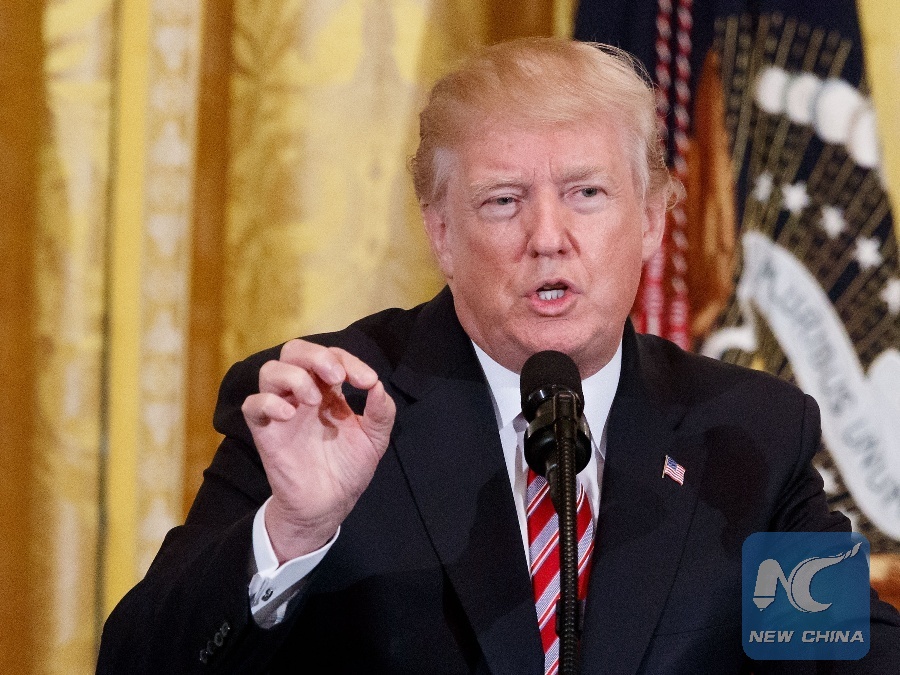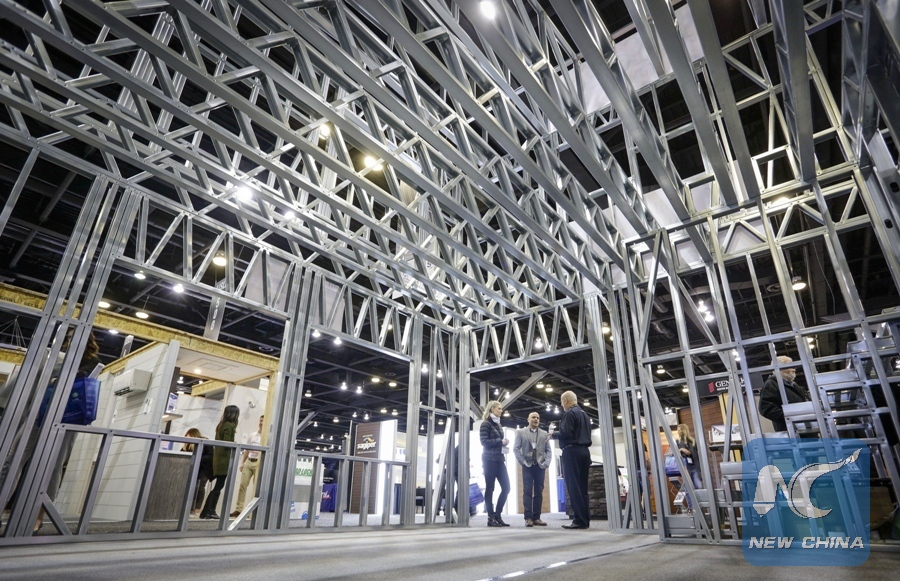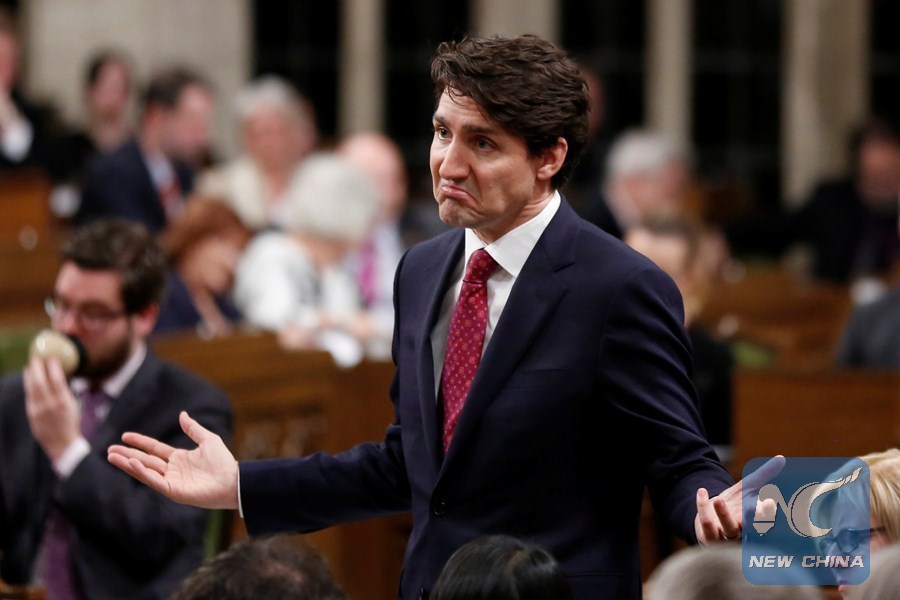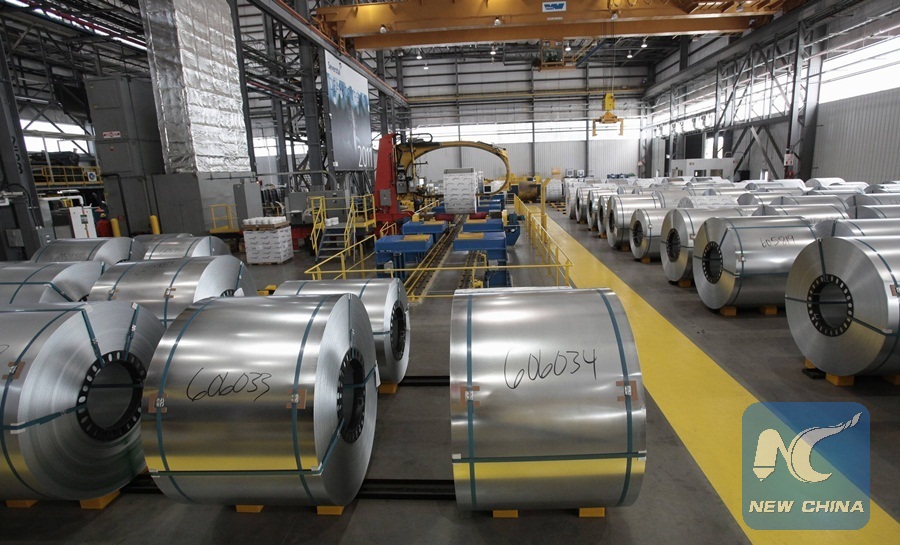
File Photo: U.S. President Donald Trump speaks during a National African American History Month reception at the White House in Washington D.C., the United States, Feb. 13, 2018. (Xinhua/Ting Shen)
by Evan Duggan
VANCOUVER, March 2 (Xinhua) -- U.S. President Donald Trump is risking economic harm to his own country and possibly an international trade war if he follows through on his threat to slap tariffs on imported steel and aluminum, a Canadian trade expert said.
"I don't believe it will be implemented next week, at this point in time. But I think he'll try," Mike Manjuris, professor of global management studies at Ryerson University, told Xinhua in an interview on Friday.
The tariff would likely come in the form of an executive order by the president, Manjuris said. "That would make it vulnerable to legal challenges from individual American states and companies who feel they would be harmed by the import taxes of 25 percent on steel and 10 percent on aluminum."
"They can actually take him to court and find an injunction," he said, adding that "every indication is that this will hurt their economy."
Manjuris called the threat a protectionist measure that will not help the U.S. economy.
"He is doing it for political reasons. He's doing it basically to satisfy his base and to make them think he's fulfilling a promise," he said.
He said every academic and industrial study shows that the economy that gets hurt the most in these situations is the one that imposes the initial protectionist measures.

An exhibitor showcases a large scale steel house frame structure at the BUILDEX trade show in Vancouver, Canada, Feb. 15, 2018. (Xinhua/Liang Sen)
U.S. aluminum production isn't large enough to meet the demand for aluminum in the country, Manjuris said.
If Trump goes ahead with sweeping tariffs on aluminum imports, prices of aluminum components and products and products that use aluminum components are going to rise, he said. "Immediately, there will be a price run."
He said the tariffs would also tamp down economic activity, chase away foreign investment and eventually kill jobs.
It could also lead to a trade war, he said.

Canada's Prime Minister Justin Trudeau speaks during Question Period in the House of Commons on Parliament Hill in Ottawa, Ontario, Canada, February 28, 2018. (Xinhua/REUTERS)
On Friday, Canadian Prime Minister Justin Trudeau said the new steel and aluminum tariffs made no sense, according to the CBC, Canada's national broadcaster.
"We regard the implication of any new tariffs as absolutely unacceptable," Trudeau said, adding that he has spoken with Trump for several times "highlighting this is not something that we want to see."
The CBC also reported Friday that the Canadian government is seeking an exemption on the would-be tariff and would take retaliatory trade measures against the United States if it's imposed.

Steel coils wait to be shrink wrapped and shipped to customers at the Severstal steel mill in Dearborn, Michigan in this June 21, 2012 file photograph. (Xinhua/Reuters)
Data released by the Canadian Steel Producers Association showed that Canada and the United States traded more than 10 million tonnes of steel, worth 12 billion Canadian dollars, in 2017.
Canada is the top destination for U.S. steel exports, representing half of all U.S. total exports, while the United States is the No. 1 destination of Canadian steel exports, representing around 90 percent of Canada's exports and almost 45 percent of domestic stell production, the data showed.
U.S. steel exports represent about 30 percent of Canada's steel consumption, while Canadian exports only represent 6 percent of the entire U.S. steel market, it revealed.

